Filmmaker Merrill Aldighieri
remembers Carl Anderson
Today is the 76th anniversary of the birth of the late, great American singer and actor Carl Anderson (1945-2004), whom I’ve been honoring throughout February – the month of both his birth and death.
This honoring concludes today with something very special: my recent interview with filmmaker Merrill Aldighieri (right) who worked with Carl on a number of projects in the mid-1980s.
Merrill’s first project with Carl was in 1986 when she directed the music video for his recording of “Buttercup.” Later that same year she filmed Carl in concert at Washington, D.C.’s Carter Barron Amphitheater. At that same time she interviewed him in Rock Creek Park, Carl’s favorite place in Washington.
As you’ll see, in my interview with her, Merrill reflects upon working with Carl on all of these projects and more. First, though, here is the “Buttercup” music video that Merrill directed for Carl. Enjoy!
Michael Bayly: How did it happen that you came to work with Carl?
Merrill Aldighieri: I was invited to make a music video for “Buttercup” by his manager Mike Caplan. It had to be done ASAP so we got to work right away. There was no time for him to mail me a copy of the song, so Carl sang it to me over the phone. When he was done, I said, “You sing just like Stevie Wonder.” Carl replied, “You mean Stevie Wonder sings just like me!” It was many years before I learned how Carl mentored Stevie Wonder, and then the conversation came back to me!
Before your professional relationship with Carl, what did you know about him and his career?
I knew nothing, zip about Carl before that singing phone call.
What was Carl like to work with?
Carl was wonderful to work with, very open to direction. His experience working on the soaps [most prominently Days of Our Lives] was a great asset. [In making the music video] he was surrounded by amateurs yet they all blended in an ensemble. There was no script and I was improvising on the spot. It was more like play than work. Carl went with the flow. The shoot went great and we were shooting all over the place, including Grand Central Station. We did the whole shoot in one day and night.
Right: Merrill Aldighieri in 1986 (photographed by John A. Mozzer).
What was he like as a person? What qualities stand out for you, even after all these years?
Carl’s laugh, smile, openess all stand out to me. The interview I did with him by the river was the most challenging, and I asked a lot of him. He had some reluctance, but I won his trust.
The music video you made with Carl in 1986, “Buttercup,” is very much of its time in terms of outfits, hairstyles, colors, etc. . . .
Where did the ideas for the visuals, locations and story line come from? What was it like making the video? What memories of it stand out the most for you?
The ideas came from me. I started with the lyrics and planned scenes based on the words. As I look at the clip, I think there is a touch of Jean Cocteau influence in there. I was friends with the artist who made the furniture. He and his brother also designed the package art for the DANSPAK series. I built one scene around that.
At the time I did not know any tall black women except one I met when I was in Washington D.C. speaking at the Kennedy Center, so I called her and flew her to NYC to play opposite Carl. I just thought they would look good together. It turned out she was the younger sister of [Susan Beaubian] the woman Carl acted with who played his wife in The Color Purple. I thought this was an extraordinary coincidence. The other performers in the video were friends, neighbors, and friends-of-friends. One was a 14-year-old boy who just hit puberty and grew about a foot in one month. I bumped into him in my elevator and invited him to be in the clip. He was part of my ensemble from then on.
What is the story behind the 1986 concert at the Carter Barron Amphitheater? What was it like filming that concert? What are your fondest memories of it? Were there challenges that you recall?
The Carter Barron Concert production was the idea of Carl’s manager Mike Caplan. He expected we would be able to sell it to BET, and Gloria Loring's cameo appearance seemed like a great bonus. The production was expensive so we were kind of stressed. The filming I shot during the rehearsal was the most fun I had. The concert was really tough. Very hot, unpredictable. My camera was on a tripod and I was used to doing hand held camera, so I was a bit of a fish out of water. I did the editing from U-Matic working dubs of the Betacam masters. We were very disappointed to never sell the concert to BET. The programmer said Carl was not “Black enough.” I was pretty miffed. This was at a point when rap was huge. So this sat on the shelf for decades.
What was it like to work with Carl on this particular concert project? He seems very energized and animated. Was this how he was most of the time? Were there quieter, more reflective moments for him? What was he like during those quieter times?
The interview by the river is a good example of his more quiet times, and he was very philosophical, very warm and honest. It was a powerful moment. We also were in Washington, D.C. making a fundraising film to save a historical Black theatre, the Lincoln Theatre. I will have to upload that one of these days. The odd thing about that, a wonderful project, is that we were so excited to have secured an interview with the Mayor of Washington DC, Marion Barry. You can imagine our horror and shock when after finishing our editing with the intro by Mayor Barry, he was all over the news after being caught in that awful sting operation. This kind of sunk our fundraising video.
In working with Carl, do you feel you got to know him as a person and not just a work colleague? Did you ever meet or get to know his family? Or did he have clear boundaries around things like that?
We only had a few days together over the years and I did not get to know him, except that even in a few hours I felt like I did get to know him. I was New York-based, he was not, so our paths only crossed creatively. My partner’s parents took a shine to him and went to see him whenever he performed at the Atlantic City casinos, and he always remembered them warmly.
I’ve always felt that Carl never received the attention and accolades that he and his music deserved. Why do you think he never achieved a higher profile in the music industry and thus never became more well-known with the general public?
I think that rap music shifted the audience attention and ballads and traditional melodic crooning was geared to an older audience. I am not really well placed to judge though, as I was involved with experiemntal, no wave, and new wave music which was on the fringe of the market share. But the series I released with Sony was meant to break new music on video and give lesser known artists a foot in the business. Carl was, under this guise, a big headliner compared to some of the other groups in my ecclectic compliations.
When you heard of Carl’s death, what were your first thoughts? As the years have passed, what do you find yourself missing or regretting most about his life so sadly cut short?
I can’t answer. I can't think about him as dead. I know that sounds weird, but there it is.
Is there anything else you would like to share about your memories of Carl?
He was bigger than life! Speaking with him was like communing with a great whale, some deep sea creature that knows depths us minnows can’t imagine.
POSTSCRIPT: Merrill Aldighieri has produced a DVD entitled Carl Anderson: The Work Tapes. It contains all of the projects mentioned in my interview with Merrill, including Carl’s live 1986 performance at the Carter Barron Amphitheater, the official promotional video for “Buttercup,” and the “river interview.” All in all, it’s a must-have for admirers of Carl and his music.
To purchase Merrill's DVD, click here.
The Wild Reed’s February 2021 Celebration of Carl Anderson:
• Remembering an Artist and Vocalist Extraordinaire
• An Electrifying Spectrum of Emotions
• “Fare Thee Well, My Nightingale”
The Wild Reed’s February 2020 Celebration of Carl Anderson:
• Carl Anderson: On and On
• Carl Anderson and The Black Pearl
• Carl Anderson in The Color Purple
• Carl Anderson: “Let the Music Play!”
The Wild Reed’s February 2019 Celebration of Carl Anderson:
• Remembering and Celebrating Carl Anderson
• Carl Anderson: “Pure Quality”
• Carl Anderson’s Judas in Jesus Christ Superstar: “The Gold Standard”
• Carl Anderson’s Judas: “A Two-Dimensional Popular Villain Turned Into a Complex Human Being”
• Carl Anderson: “Artist and Vocalist Extraordinaire”
• Playbill Remembers Carl
• Remembering the Life of Carl Anderson: “There Was So Much Love”
For more of Carl at The Wild Reed, see:
• Carl Anderson: “Like a Song in the Night”
• Carl Anderson: “One of the Most Enjoyable Male Vocalists of His Era”
• With Love Inside
• Carl Anderson
• Acts of Love . . . Carl’s and Mine
• Introducing . . . the Carl Anderson Appreciation Group
• Forbidden Lover
• Revisiting a Groovy Jesus (and a Dysfunctional Theology)
Related Off-site Links:
A Profile of Carl Anderson – Part I: A Broadway Legend with Lynchburg Roots – Holly Phelps (LynchburgMuseum.org, May 12, 2015)
A Profile of Carl Anderson – Part II: The Legend Lives On – Holly Phelps (LynchburgMuseum.org,June 10, 2015)
Carl Anderson – Jazz Legend: The Official Website
Carl Anderson Memorial Page
Carl Anderson at AllMusic.com – Ron Wynn (AllMusic.com)
Carl Anderson Biography – Chris Rizik (Soul Tracks)





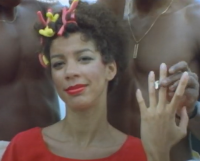





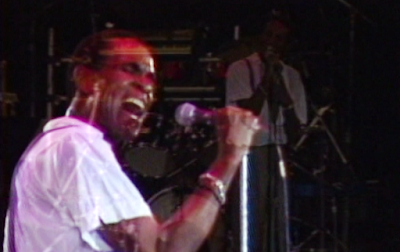


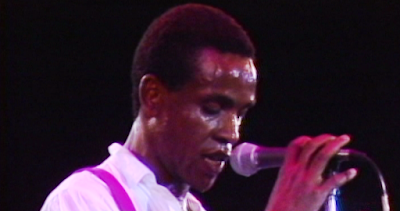
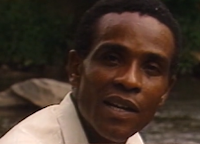
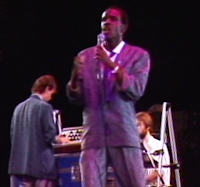
























No comments:
Post a Comment